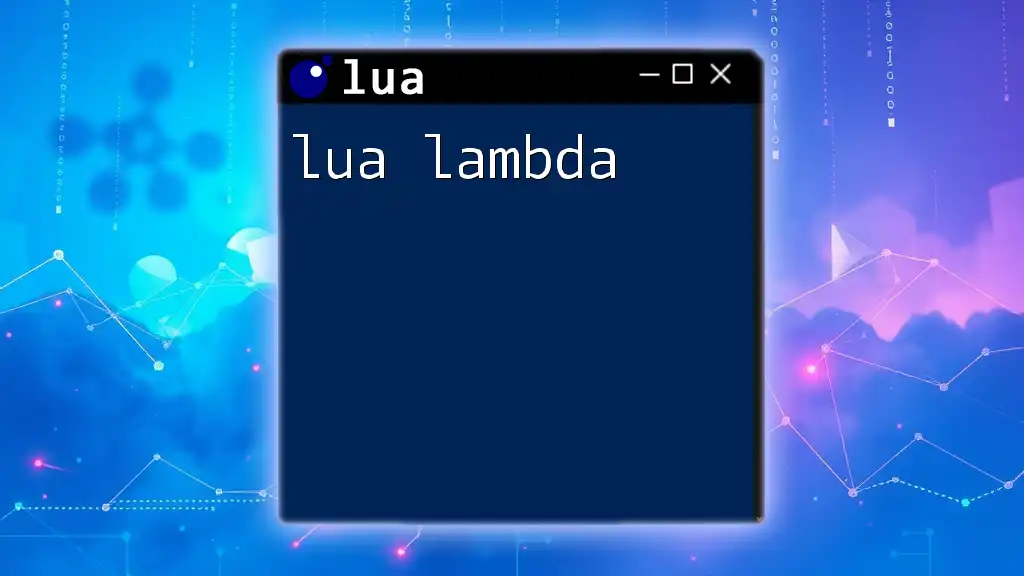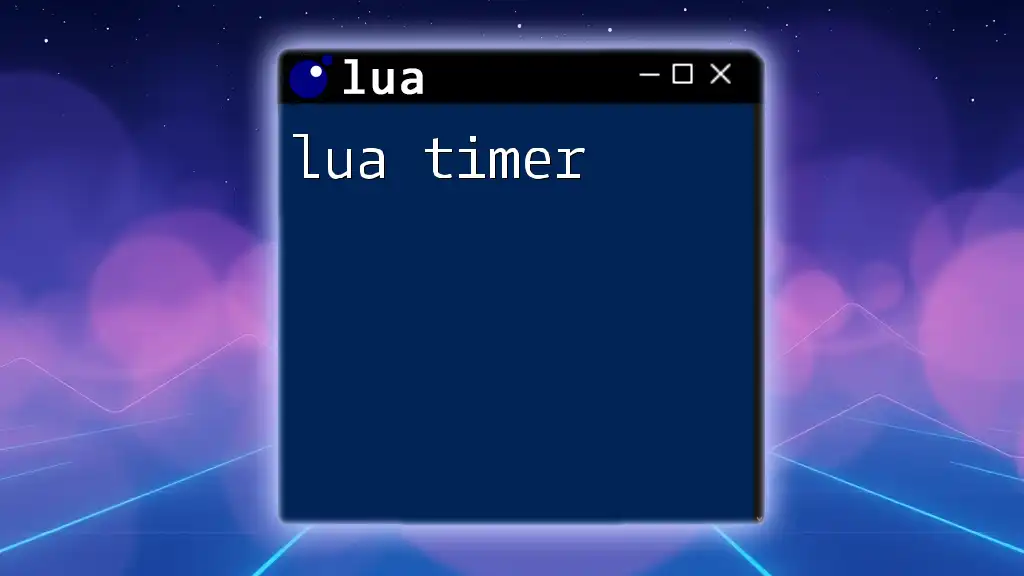In Lua, a "name" refers to an identifier used to label a variable, function, or table, allowing you to reference it later in your code.
Here’s a simple example of a variable name in Lua:
local greeting = "Hello, Lua!"
print(greeting)
Understanding Lua Names
What Is a Name in Lua?
A name in Lua refers to identifiers used for variables, functions, and tables. These names allow developers to reference and manipulate data throughout their code. Understanding how to appropriately use names is critical, as it affects both the readability and functionality of your code.
Characteristics of Names in Lua
Valid Characters
Names in Lua must consist of letters, digits, and underscores. However, a name cannot start with a digit. For instance, `user_name` and `score1` are valid, but `1score` is not.
Case Sensitivity
Lua is a case-sensitive language, meaning that `Variable`, `variable`, and `VARIABLE` would be considered three distinct names. Therefore, it’s crucial to maintain a consistent naming style throughout your code to avoid confusion.
Naming Conventions
To enhance code readability, developers should adopt established naming conventions. Using camelCase for variables, such as `totalPrice`, or snake_case for functions, like `calculate_sum`, helps communicate the purpose of the name clearly.

Types of Names in Lua
Variables
A variable name serves as a reference to stored values. Declaring a variable is straightforward. For example:
local userName = "JohnDoe"
In this example, `userName` is an easily understandable name that indicates the variable holds a user’s name. Best practices suggest you choose descriptive names that convey meaning, which is especially important in collaborative coding environments.
Functions
Function names are essential for denoting blocks of reusable code. For example:
function calculateSum(a, b)
return a + b
end
In this snippet, `calculateSum` clearly describes the function’s purpose. Effective naming can improve maintainability, making it easier to understand the code’s logic whenever changes are required.
Tables
Tables in Lua are versatile data structures that can represent arrays, dictionaries, or even objects. Each table can be given a descriptive name:
local user = {
name = "Jane",
age = 25
}
Here, `user` serves as a clear identifier for a table that contains user-related information. When structuring table names, it’s beneficial to reflect the content or purpose of the table for better code clarity.

Scope of Names
Local vs Global Names
The concept of scope refers to where a name is valid and accessible.
Local Names
Local names are defined within a specific block and are only accessible there. They are declared using the `local` keyword:
local myLocalVariable = 10
This variable `myLocalVariable` is only visible within the block it was defined in, which helps in keeping the global namespace clean and prevents unintended side effects.
Global Names
In contrast, global names can be accessed anywhere in the program, but they come with drawbacks. If you declare a variable without the `local` keyword, like so:
myGlobalVariable = 20
This variable becomes global and can lead to unintended name conflicts as your codebase expands. Best practices strongly advocate for the use of local variables unless global state is necessary.

Managing Names in Lua
Shadowing
Name shadowing occurs when a local name has the same identifier as a global name, temporarily hiding the global variable. For example:
local x = 5
function shadowFunction()
local x = 10 -- Shadows the outer x
print(x) -- Outputs: 10
end
In this case, within `shadowFunction`, `x` refers to the local value of `10`, while outside, `x` still references the global value of `5`. This can lead to confusion and hard-to-find bugs, which is why awareness of shadowing is important.
Name Conflicts
Name conflicts occur when two different names collide, often due to similar naming conventions. When writing:
local functionFunction = function() return "Function" end
local function = "This is not a function"
The name `function` shadows the legitimate function you've defined, leading to potential errors. Managing your naming strategy to avoid such conflicts is crucial, particularly in larger applications.

Conclusion
Summary of Key Points
In summary, the importance of names in Lua programming cannot be overstated. Names serve as the foundation of understanding, code structure, and readability. By adopting careful naming practices, embracing scope visibility, and avoiding pitfalls like shadowing and name conflicts, developers can create robust and maintainable Lua applications.
Additional Resources
For further deep dives into Lua naming conventions and more, refer to the [official Lua documentation](https://www.lua.org/manual/5.1/) or explore recommended programming books and online courses that focus on Lua development.
Call to Action
As you embark on your Lua programming journey, take a moment to reflect on your naming conventions. Practice the techniques shared in this article to cultivate a standard that enhances your code's clarity and maintainability. Subscribe for more insights into Lua and related programming topics!

















